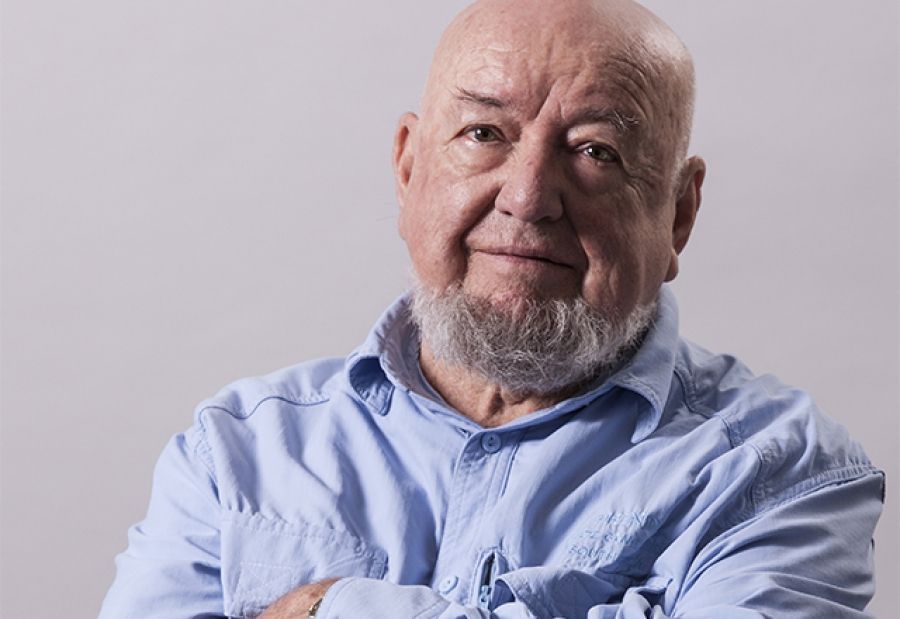
- Free Article: No
- Contents Category: Open Page
- Custom Article Title: Open Page with Thomas Keneally
- Review Article: No
- Online Only: No
- Custom Highlight Text:
Many of my dreams have to do with the sea. Sometimes they concern Antarctica, an exciting prelude to going into the interior with other people.
What is your favourite word?
Eternal.
Which human quality do you most admire?
The quality of endurance, of being beaten about the head by history but still maintaining hope. I realise my parents, Depression products, World War II survivors, postwar toilers, had it in buckets.
Where would you like to have been born?
Australia, where I was born. As long as you don’t let yourself become insular, it’s a great platform from which to travel into a more parlous and less stable world.
What is your favourite book?
Dostoevsky’s The Idiot. Prince Myshkin, the humane ‘idiot’ of the title, is a splendid creation whose sophisticated simplicity shows up the treachery and manipulations around him.
And your favourite literary hero and heroine?
Baby Suggs in Toni Morrison’s Beloved; and Patrick White’s Voss.
What, if anything, impedes your writing?
Self-doubt above all, an often well-founded doubt about the validity and significance of what I am writing about; and the occasional feeling that it’s all been done better before.
How old were you when your first book appeared?
Twenty-nine – emotional age: six.
Of which of your books are you fondest?
Definitely the novel I am currently writing, chiefly because I’m still in that delusional state where its flaws have not been exposed and its possibilities are as yet limitless.
In a phrase, how would you characterise your work?
Not necessarily jolly. Mainly to do with the way flawed humans take on responsibility in the face of greater historic force, sometimes paying the cost of their own destruction, sometimes surviving. To me, that represents the great human drama.
Who is your favourite author?
William Butler Yeats. I read him for delight but also to fill the depleted tanks of my own prose.
How do you regard publishers?
The editor often becomes a friend for life, and there are very good editors in Australia. But writers are more ambiguous about the whole machine of a publishing house. It’s inevitable, because it’s like the relationship between parent and school. To the parent (writer) there is only one child (one book); to the teacher (publisher) that one child is simply one face among many crying out for priority and resources. The best thing the writer can do is, with the help of his agent, to speak constructively and, after disappointments, without anger, since the opposite can become an excuse for considering a writer difficult. The writer should state disappointments frankly, suggest solutions, and thank those who help their book.
What do you think of the state of criticism?
Same as ever – in a small literary community it is hard to find a reviewer who does not have at least an acquaintance with the writer. Sometimes that acquaintance is not at all pleasant, but a good reviewer will rise above that. There seem to be fewer critics who use reviews to take vengeance on the writer’s character than in the past. The increasing problem is that literary editors are finding it harder to recruit reviewers, and that literary pages have shrunk.
If you had your time over again, would you choose to be a writer?
Yes, without a second’s hesitation, but I’d also try to take art classes at a high level.
What do you think of writers’ festivals?
Great. They allow us to meet in a fraternal atmosphere and to prance – an antidote to the self-doubt which privately plagues us. The major Australian festivals are also run with admirable professionalism.
Do you feel artists are valued in our society?
More than they were once. Now there are Australians who cherish artists. I am a great believer in immensely expanded expenditure of seeding money, because it always comes back to government in one form or another but with the greater benefit of creating more than a skimpy arts scene. I fear that if they did not already exist, some major arts companies would not be founded in our age, in which only immediate book-balancing is permissible. There is an added problem that if artists make a stand on political issues they are derided as latte-sippers.
What are you working on now?
A novel about World War I nurses – and Volume Two of my history, 1860–1942.


Comments powered by CComment